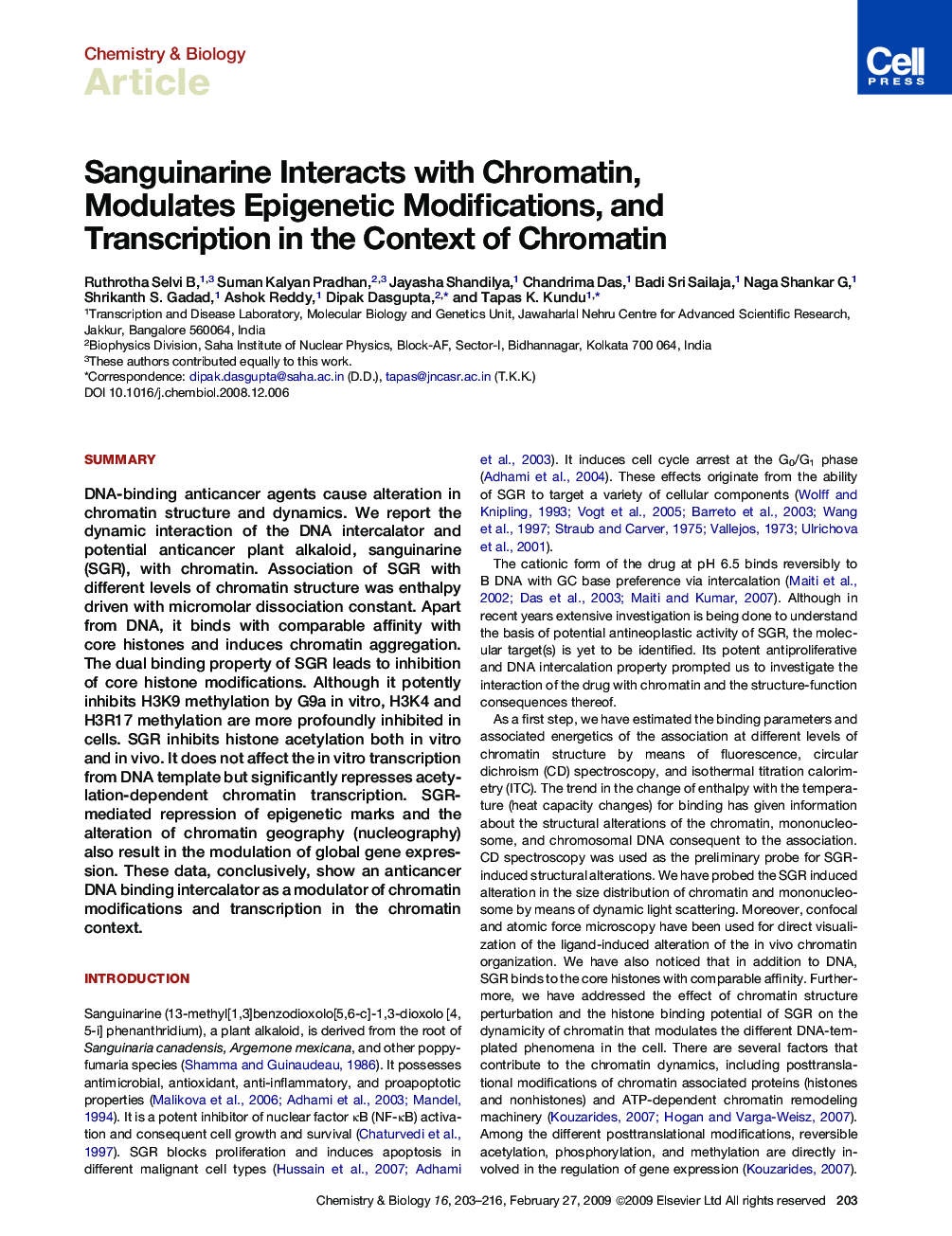| Article ID | Journal | Published Year | Pages | File Type |
|---|---|---|---|---|
| 1393963 | Chemistry & Biology | 2009 | 14 Pages |
SummaryDNA-binding anticancer agents cause alteration in chromatin structure and dynamics. We report the dynamic interaction of the DNA intercalator and potential anticancer plant alkaloid, sanguinarine (SGR), with chromatin. Association of SGR with different levels of chromatin structure was enthalpy driven with micromolar dissociation constant. Apart from DNA, it binds with comparable affinity with core histones and induces chromatin aggregation. The dual binding property of SGR leads to inhibition of core histone modifications. Although it potently inhibits H3K9 methylation by G9a in vitro, H3K4 and H3R17 methylation are more profoundly inhibited in cells. SGR inhibits histone acetylation both in vitro and in vivo. It does not affect the in vitro transcription from DNA template but significantly represses acetylation-dependent chromatin transcription. SGR-mediated repression of epigenetic marks and the alteration of chromatin geography (nucleography) also result in the modulation of global gene expression. These data, conclusively, show an anticancer DNA binding intercalator as a modulator of chromatin modifications and transcription in the chromatin context.
